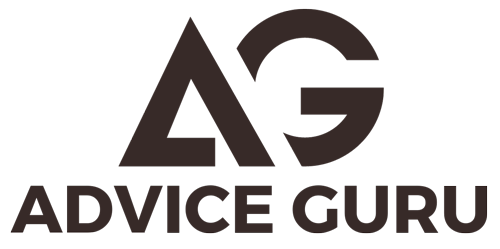Dream House Secured: Next Steps

Congratulations on having your offer accepted on your dream home! Now that you’ve reached this exciting milestone in your home-buying journey, it’s time to shift your focus to the next crucial steps ahead. In this guide, we’ll explore the essential tasks and considerations to navigate seamlessly after accepting an offer, ensuring a smooth transition towards owning your new property. From securing financing to conducting inspections, let’s delve into the key aspects to help you make informed decisions and confidently move forward in this exhilarating process. If you start searching the options below, you can find the best deals for you. What’s the Home Worth? Okay, you made an offer, and the seller accepted, but now what? Enter the appraisal! This is where a professional assesses the home’s fair market value – basically, what it’s actually worth in today’s market. The home appraisal value is super important because it directly affects how much your lender will loan you. In hot markets like Raleigh, where bidding wars are common, the appraisal is your reality check to make sure you aren’t drastically overpaying. The appraisal process isn’t just about the house itself. The appraiser looks at things like recent sales of similar homes in the area, the home’s condition, and any updates you’ve made. Expect to pay around $400-$600 for an appraisal in 2024. And hey, read that appraisal report carefully! If something seems off, it could be a point of negotiation with the seller. Negotiate the Best Deal Think beyond the dollar signs! In 2024, a good negotiation is about more than just getting the lowest price. Maybe the seller can contribute to your closing costs (which can easily be thousands of dollars). Or, if the inspection turned up some needed repairs, you can negotiate for the seller to fix them before you take ownership. Speaking of inspections, that report is your negotiation superpower! If there are issues like a leaky roof or an outdated electrical system, you can ask the seller to lower the price or give you a credit at closing to cover the repair costs. Contingencies are your safety net – they let you back out of the deal if certain conditions aren’t met, like if your financing falls through or the inspection uncovers a major problem. Closing the Deal The finish line is in sight! Closing day is when you’ll sign a mountain of paperwork (seriously, prepare your hand for a workout!), wire the funds, and finally get those coveted house keys. Be prepared to pay closing costs, which can add up to 2-5% of the purchase price. This is where a great real estate agent earns their commission. They’ll make sure everything goes smoothly and that you understand every document you’re signing. And once those keys are in your hand, it’s time to celebrate—you’re officially a homeowner! Know Your Closing Costs Ugh, closing costs. Just when you thought the financial rollercoaster was over, you get slapped with a whole new set of fees! These can seriously add up, so don’t get blindsided at the finish line. Closing costs vary depending on your location – think 2-5% of the purchase price on average in 2024. Do some research to figure out what’s typical in your area so you can budget accordingly. Get ready for a laundry list of confusing fees on your closing documents. You’ll see things like appraisal fees ($500-$700 on average), title search fees ($200-$400), loan origination fees, and a bunch of other random charges. Don’t be afraid to ask your real estate agent or the mortgage lender to explain each one. It’s your hard-earned money, and you deserve to understand where it’s going! Check the Property Title Imagine buying your dream house, only to find out later that the previous owner had a secret tax lien that’s now your problem. Nightmare fuel, right? That’s why a title search is so important! Think of it as hiring a detective to dig into your house’s past and make sure there are no skeletons in the closet. Title insurance is another layer of protection. It might seem like a hefty cost upfront (around $1,000 or more for a typical home in 2024), but trust me, it’s worth it. This protects you and your lender from some random person popping up years later claiming they own your house. Think of it as the ultimate peace-of-mind purchase. When to Lock Your Interest Rate Interest rates are like a financial roller coaster in 2024 – one day they’re up, the next day they’re down. Timing your rate lock is crucial because even a tiny change in interest rate can seriously change your monthly payment. For example, a measly 0.25% increase on a $300,000 loan could mean shelling out an extra $42 a month! Ouch. So, when to pull the trigger? Once your offer is accepted and you’re confident that the closing process is moving along smoothly, that’s usually a good time to lock in your rate. Some lenders offer a “float down” option, meaning if rates drop while you’re locked in, you might be able to snag the lower rate (though there might be fees involved). It’s a gamble, but it could save you some cash! Get Homeowners Insurance Protecting your real estate investment is key, but homeowners insurance isn’t one-size-fits-all. If you’re buying in a disaster-prone area like California or Florida, be prepared for higher premiums. Plus, your standard policy likely won’t cover things like floods or earthquakes—those require separate and often expensive policies. The cost of homeowners insurance varies a ton. A house in a high-risk area could easily see premiums over $2,500 a year, while a similar house in a safer zone might be closer to $800. As you approach the final stages of securing your dream home, it’s essential to stay informed and proactive. From negotiating the best deal to navigating the complexities of closing costs and property titles, each step is crucial in ensuring a smooth transition to homeownership. By understanding the intricacies of the appraisal process, mastering


